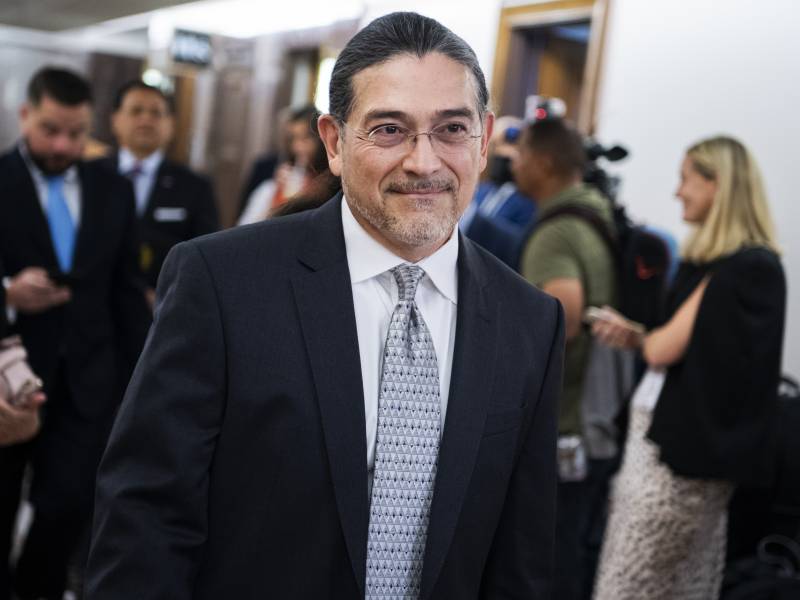The Senate has confirmed Robert Santos, President Biden's nominee to head the U.S. Census Bureau, for a historic political appointment.
After a bipartisan 58-35 vote on Thursday, Santos, one of the country's leading statisticians, is on track to be sworn in as the first Latino to lead the federal government's largest statistical agency, which carries out key national surveys and the once-a-decade head count used to distribute political representation and federal funding around the United States.
While Santos is set to become the first person of color to serve as a permanent, Senate-confirmed Census Bureau director, he is the second-ever person of color to oversee the constitutionally mandated count. More than two decades ago, James F. Holmes, a survey statistician turned regional director for the bureau who is African American, temporarily led the bureau in 1998 as its acting director, breaking with more than two centuries of white people heading the U.S. census.
Santos' swearing-in is not expected to take place until after Jan. 1, the bureau confirmed to NPR in a statement. The Senate did not take up a motion that would have allowed him to serve the remainder of a Census Bureau director term that ends this year. But its vote on Thursday did approve an appointment that begins next year and is expected to last through the end of 2026 during key preparations for the 2030 census.
His appointment comes as the bureau attempts to recover from an extraordinary string of political appointees without any obvious qualifications joining the agency's top ranks during former President Donald Trump's administration. The influx generated "grave concerns" from the American Statistical Association, where Santos has served as president.
Santos — who is also a vice president and chief methodologist at the Urban Institute and a Mexican American who has identified as mestizo for the census — brings decades of not only professional expertise in survey design, but also personal experience that could help the Census Bureau mend its reputation after the Trump administration's interference, including a failed push for a citizenship question that was likely to deter many Latinx and Asian American residents from participating in the census.
Santos told lawmakers during his confirmation hearing in July that the bureau needs "more transparency and independence to build public trust" after a "tumultuous" 2020. Last year's count was upended by the coronavirus pandemic and last-minute schedule changes by Trump officials who cut short the time for counting — a move that Santos criticized in a letter to Senate leaders last year for having "no scientific rationale."
"I understand the importance of data quality and the Census Bureau's role in providing data that nurtures our democracy, informs our people and promotes our great economy," Santos said during the July hearing.
In 2019, Santos co-wrote an Urban Institute report warning that last year's national count could produce high undercounts of Black and Latino people. Santos recently advised a study released Tuesday by the Washington, D.C.-based think tank that suggests the 2020 census likely undercounted people of color at rates higher than those of the previous tally.
Arturo Vargas, CEO of the National Association of Latino Elected and Appointed Officials Educational Fund, said in a statement that he hopes Santos will "bring his life experience and cultural understanding of the Latino community to pursue new strategies to improve the count of Latinos."
"We also encourage him to make it a priority to improve the representation of Latinos throughout the Census Bureau's permanent workforce," added Vargas, a longtime census advocate.
A brother's sacrifice allowed Santos to pursue statistics and "helping people"
Born and raised in the barrios of San Antonio, Santos grew up in a Gold Star family. The death of his brother — U.S. Army Spc. Rene Santos, who died while serving in the Vietnam War in 1969 — left him, he testified, with "a pain that endures to this day." His brother's death gave Santos a military draft deferment that he says he "did not seek."

9(MDAxOTAwOTE4MDEyMTkxMDAzNjczZDljZA004))